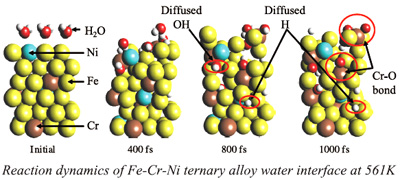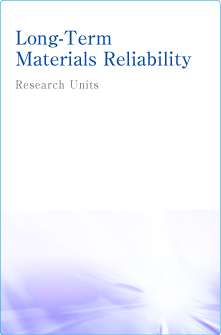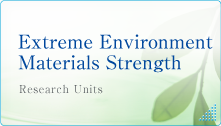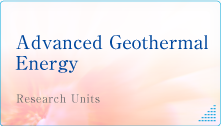Frontier Research Initiative, NICHe, Tohoku University.
Top Page > Research Projects > Long-Term Materials Reliability
Contribute to establish a world-wide safety and confident infrastructures under an international cooperative work on Proactive Aging Management for prediction of latent risks of fracture and failure of structures in energy conversion systems based upon "Fracture Physics and Chemistry"
The energy security is one of the most critical issues to Japan with scarcity of natural resources, and the long-term energy
policies would have to rely on a variety of energy sources limiting the global warming. The integrity of complex huge
systems can be materialized only when the perception of various foresightedly potential risks could be repeatedly updated.
In our laboratory, academic research activities on "Physical Chemistry of Fracture" are performed in conjunction with broad
international collaborations with our ultimate goals of the prediction and minimization of the foreseeing potential risks of
ageing degradation events in energy-generating components operated under a variety of aggressive environments.
- Environmentally assisted cracking of materials under light-water nuclear reactor conditions:
For the promotion of international collaboration with a number of world-classed institutes and specialists, the FRRI serves as a global base for the following research fields. - Expert meetings are organized for foresightedly evaluating the ageing degradation of several nuclear materials, leading to fully understanding the potential ageing phenomena and minimizing the possible degradation, the knowledge of which are globally disclosed.
- Nondestructive detection of the ageing-damage behavior and long-term reliability assessments of structural components.
Mechanistic Study of Environmentally Assisted Cracking in Light Water Reactor Environment
Through research on the mechanisms of Environmentally Assisted Cracking (EAC) such as Stress Corrosion Cracking (SCC)
in light water reactor environments, we have been conducting investigations that can form the basis of development of
next-generation materials. The development of these
materials will ensure the long-term durability of
various components in power plants. As approaches
to achieve this objective, we are conducting
comprehensive experiments on oxidation behavior,
precise crack growth rate examination of the alloys in
LWR environments , and theoretical and numerical
analysis that includes nanoscopic analysis using
quantum chemical molecular dynamics and small
crack growth rate evaluation using 3-dimensional
finite element method.

Research on Long Term Reliability of the Structural Materials in Operating Energy Conversion Systems
We aim to establish a quantitative and accurate method for predicting degradation behaviors in structural components in operating plant, such as stainless steels and nickel base alloys. Regarding the material degradation of operating nuclear power reactors, crack growth rate testing of pipe shape specimens are carried out with special emphasis on specimens' geometry and loading conditions to which the structural components of operating plant is subjected. Based on these results, we have been conducting research on the applicability of our crack growth rate prediction model and proposed crack growth rate curves.
Leading Experts' Panel Meeting for Proactive Materials Aging Management NISA Project on "Enhancement of Aging Management and Maintenance of Nuclear Power Plants"
In order to extract potential / latent materials degradation in aged nuclear power plants, both an inductive approach
based upon the events in the past with detailed root cause analysis and a deductive approach based upon the fundamental
understanding of materials degradation mechanisms are necessary. For this purpose to be proactive to predict and prevent
potential / latent degradation , experts' knowledge and their chain-reaction and fusion would be essential through a
discussion at the Experts' meeting annually or bi-annually to extract "Generic issues" and "Specific Issues" for materials
aging. Especially among materials aging degradations, new mechanisms of degradation and synergy / cascade
degradation are of great concerns to be extracted.









